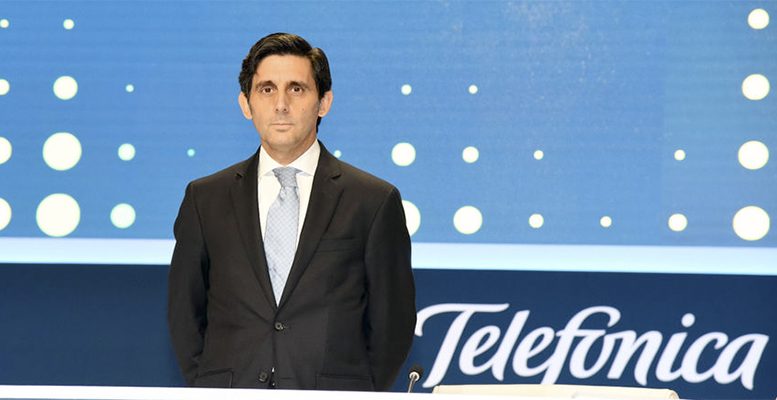The last few years have not exactly been wonderful for Spain’s leading telecommunications operator. From the almost 18 euros per share which Telefónica was trading at in 2011, it did not stop falling until it reached 8 euros last November and December.
But this year, its comeback has been so strong that the stock is now around 10,3 euros, meaning it has gained no less than 31% from last year’s minimum levels. So much so that Telefónica has been the best performing European telco in the sector over the last few months.
Part of this recovery is due to a variety of reasons which have boosted stock markets in general, and the Spanish bourse in particular, in the past weeks: an improved marcro outlook, investor appetite for Spanish equities, the extension of the ECB’s corporate bond purchasing programme and the strength of the recovery in Latin America.
That said, we should not ignore the so-called ‘Pallete effect’. Whether by luck or coincidence, things seem to be turning out well for the current executive chairman: Jose María Álvarez-Pallete, aged 53, who took over from Cesar Alierta just one year ago in April 2016. His greatest achievement was the sale of 40% of Telxius to the fund KKR, which will allow the company to cut its debt by 4.625 billion euros in the first half of this year to the 47 billion euros threshold. Telefónica’s large debt pile is one of the most serious issues which the chairman has to face. At end-2016, this totalled 52.6 billion euros.
Generally speaking, the year has also gone not too badly for Álvarez-Pallete. The company chalked up profits of 2.369 billion euros, almost four times more than in 2015, the result of implementing a variety of measures.
And at the beginning, he had to deal with a whole lot of problems. Just after his arrival in in May 2016, Brussels prohibited the sale of O2 to Hutchison Whampoa. This was a deal with which the company hoped to put a big dent in its debt as the sale was going to raise a minimum 13 billion euros. A situation which, added to Brexit and the pound’s depreciation, served to create an almost depressive atmosphere in the offices of the teleco’s management team.
A few months later, in September, he was forced to suspend Telxius’ stock market debut due to a lack of investor appetite. Given the problems in cutting its liabilities, Álvarez-Pallete was obliged to cut the company’s dividend from 0.75 euros to 0.40 euros per share. A risky move, which Alierta had not dared to make.
The strange thing is that despite the fact these kind of measures usually go down badly with the markets, this time that wasn’t the case. Investors considered it aceptable, and even essential.
The question is whether the new chairman will be able to maintain the expectations which his successful decisions have generated among investors. For the time being, he will have to continue to reduce debt, by making divestments.
But one of the problems for the company is that it has been losing business and share in almost all markets. In 2016, it lost market share in the mobile business in almost all its markets, from Spain to Germany and the UK, as well as a large part of Latin America. In the fixed-line market, its share declined in all the countries where it operates: Spain, Argentina, Brazil, Chile, Peru and Colombia.
Within the company, part of this loss is attributed to its decision to hike prices. This decision was adopted, however, only in some markets, and particularly in Spain. Here it increased the price of its Fusion packages (mobile, fixed, internet and TV), something which it said it wouldn’t do. In other markets, the losses have been down to the simple fact that the competition has gained ground.
But the big unknown really lies in what Álvarez Pallete, elected best CEO in Spain in 2016 by Forbes magazine, is going to do with the operator’s business model.
The message which Telefónica sent, and which has been reinforced by Álvarez-Pallete, is that the company is making a transition from voice services to added-value data services. This is a strategy which explains the purchase of Canal+ to reinforce its television business.
For example, Telefónica has announced it will invest 100 million euros a year in content production, in series, something along the lines of Netflix. In parallel, it has also opened up new lines of activity in this area.
But this is not a new strategy. Telefónica has been rehearsing this contents business for many years. The big question is whether it will be Álvarez-Pallete who will make this strategy work, generating revenues for the company.
This is because the conventional segments of fixed-line, mobile and internet are more mature, and it’s difficult to see how the company will be able to raise prices, at least in more developed markets. At the end of the day, the operator’s revenues only increased 1.3% last year. Raising this rate of revenue generation won’t be easy.





